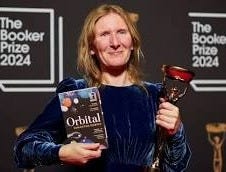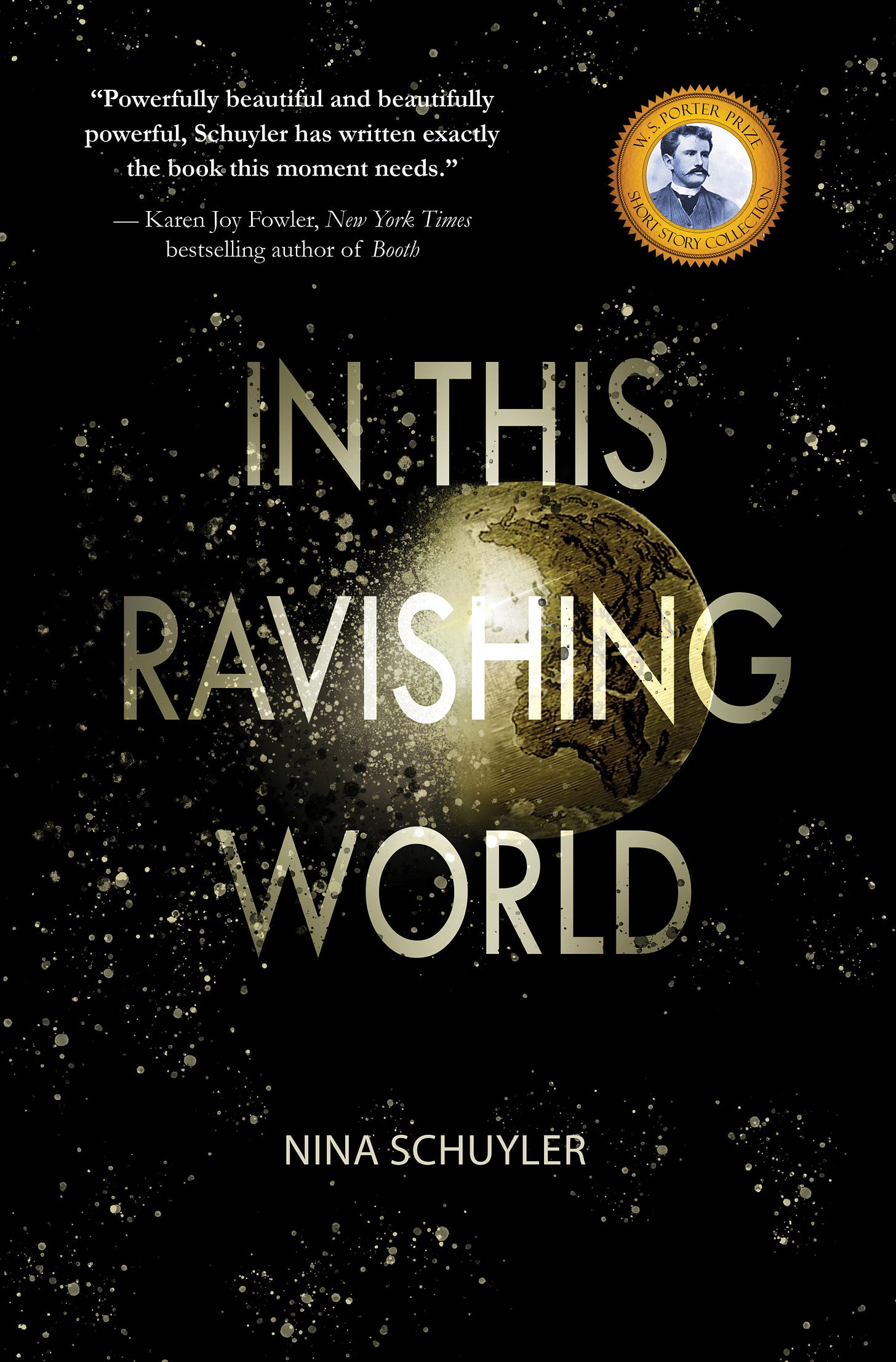He’d not known how capacious it was, the heart.
Orbital by Samantha Harvey
In this sentence, we’re in the mind of the Russian cosmonaut Anton as he’s looking out the spacecraft window at the Earth. Yes, I’m still deeply immersed in Orbital, finding the jewels, traveling with six astronauts and marveling at the universe.
When a sentence doesn’t abide by the usual word order, it draws attention to itself because the ear is not used to this new order and slows to make sense of it. Whatever is out of order becomes emphasized. The technique is called hyperbaton, a change in the usual word order. In Greek, it means "stepping over, transposed.” It’s a favorite of Shakespeare (“Some rise by sin, some by virtue fall.” Measure for Measure. Shakespeare interrupts the parallelism, which would have been: “some fall by virtue.”)
Harvey opens with the subject, “He,” followed by the verb phrase, “had not known,” contracted as “he’d not known.” This is in the past perfect tense, indicating an action completed in the past before another action or realization.
Then comes the direct object (which answers the question: what had he not known?): “how capacious it was.” It’s an interrogative clause with the subject “it.” We have to wait for the next beat in the sentence to find out what, exactly, is capacious.
Now we come to the hyperbaton move. The sentence ends with an appositive, “the heart, which adds information, revealing what “it” is. In a traditionally ordered sentence, the appositive would come after “it.”
He’d not known how capacious it, the heart, was.
Or a more traditional sentence would be:
He’d not known the heart was capacious.
But with this latter sentence, the most important word to Anton is “heart,” and it’s buried. Moreover, because the sentence is written in a traditional order, we glaze right over it. With Haney’s sentence, the reader is left with the most critical word.
Your Turn
Open with a subject and verb. Use a verb (called a transitive verb) that needs a direct object.
For the subject of the direct object, use a pronoun. Consider using an interrogative clause.
At the end of the sentence, use an appositive to rename and give information about the pronoun.
Try it!
How did it go?

Swimming in Style!
For paid subscribers, we gather on Zoom for 90 minutes each month to write stunning sentences. Remember, a sentence can blossom into a scene, into another scene, and soon you have a story. From the last session, at least two participants wrote flash pieces that were subsequently published.
If you can’t make the day or time, I’ll send you the recording and the analysis of the sentences. After 45 days, I have to delete the video, so please email me if you want to download it.
If you’re already a paid subscriber, you’re in the pool! If you are ready to dive in, please consider joining as a paid subscriber. You can pay as little as $5 a month or $50 a year.
Join us!
Our next monthly gathering is November 23 at 11:00 PST.
I’ll send the Zoom link when we get closer to this date.
About Me:
I’ve taught “Style in Fiction,” “Word for Word,” and “Cultivating Your Prose” at the University of San Francisco and Stanford Continuing Studies since 2007. Please visit my website for all my books: ninaschuyler.com, including my novel Afterword, How to Write Stunning Sentences, and Stunning Sentences: A Creative Writing Journal.
IN THIS RAVISHING WORLD:
My short story collection, In This Ravishing World, was published on July 2, 2024, and won the W.S. Porter Prize for Short Story Collections and the Prism Prize for Climate Literature. If you read it, please consider writing a review on Amazon or Goodreads.
“A brilliantly conceived and eloquent new linked story collection.”–Jane Ciabattari, Lithub
“Astonishing. An important book.” Jon DiSavino, Short Story Today podcast
“I’m blown away by this book! There is nothing–nothing–quite like it in the literary world right now.”–Susanne Pari, author of In the Time of our History
“A really wonderful collection of new stories.”—Anne Harper, KALW Radio, State of the Bay
“A lovely collection.” —Atlas Journal
“Engrossing and elegantly linked.”—San Francisco Chronicle
“Stylistically innovative in ways that I continue to think about weeks after finishing it…It’s an important book.”—Christine Sneed, The Rumpus
“Schuyler offers a Chekhovian depiction of the complications of family life, intersecting with, but not confined to, ideology.”–Paul Wilner, Nob Hill Gazette
I’m available via Zoom to talk to your book club!
To order In This Ravishing World:
The Newsletter:
Here are the instructions on how to become a paying subscriber:





We didn't know how fragile it was, the Earth.
I'm so excited for this one! About to crack open this book. Here are a couple of ideas:
- She'd not known how capricious it was, the breath.
- She'd not known how disastrous it was, the breath.
- She'd not known how prophetic it was, the breath.
(An asthmatic climate scientist facing the ruin of her research following an attack that nearly killed her.)